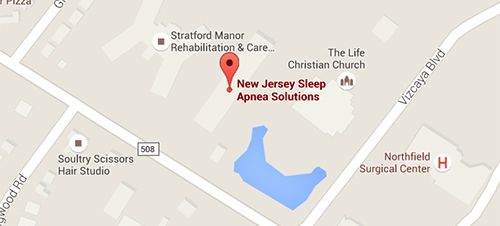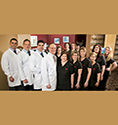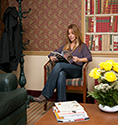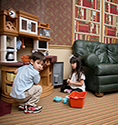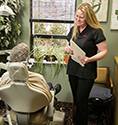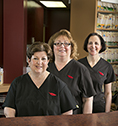How Sleep Apnea Affects Blood Pressure
Submitted by New Jersey Snoring Solutions on Tue 07/23/2019 - 09:00
 If you have sleep apnea, you probably aren’t getting the proper amount of sleep each night. Sleep plays a crucial role in keeping your mind and body rested and healthy, so if you aren’t getting enough sleep, your risk for certain health conditions, including high blood pressure, may increase.
If you have sleep apnea, you probably aren’t getting the proper amount of sleep each night. Sleep plays a crucial role in keeping your mind and body rested and healthy, so if you aren’t getting enough sleep, your risk for certain health conditions, including high blood pressure, may increase.
Below, the team at New Jersey Sleep Apnea Solutions shares how sleep affects your blood pressure and what you can do about it.
Sleep Apnea Restricts Your Breathing
One of the most common symptoms of sleep apnea is loud snoring, which is often characterized as having a choking sound and occurs when the soft tissue in the back of your throat blocks your airway.
People with sleep apnea may also stop breathing temporarily before gasping to take in more air.
When your breathing is restricted, your body’s oxygen levels decrease, and lower oxygen levels trigger receptors in your brain to tell your blood vessels to pump more oxygen around your body.
Sleep Apnea Puts Stress on Your Cardiovascular System
When your blood flow increases to re-oxygenate your body, pressure is put on your blood vessels’ walls, and when the pressure becomes too strong, it causes your heart and arteries to strain.
For these reasons, people with sleep apnea are at a greater risk for high blood pressure or hypertension, which can lead to a heart attack or stroke.
Getting Proper Treatment
Unlike hypertension brought on for other reasons, hypertension brought on by sleep apnea won’t necessarily improve with lifestyle changes, such as diet and exercise.
One of the most common treatment options for people with sleep apnea involves wearing a continuous positive airway pressure (CPAP) mask at night. A CPAP mask keeps your breathing passages open so your breathing isn’t restricted and oxygen is able to flow normally throughout your body. Wearing a CPAP mask can help your blood pressure return to a normal level. However, many individuals with sleep apnea complain that CPAP machines are bulky and the attached mask is uncomfortable to wear. Alternative treatments are available in the form of oral appliance therapy. One type of oral appliance is a mandibular-repositioning device (MRD), which keeps the airway clear of obstruction for easy breathing during sleep. MRDs are small, portable and easy to adjust to. Many sleep apnea patients report that they prefer wearing an oral appliance over using a CPAP machine.
Contact Us
To learn more about how to manage your sleep apnea and prevent or treat your high blood pressure, call or email the team at New Jersey Sleep Apnea solutions to set up an appointment today.

